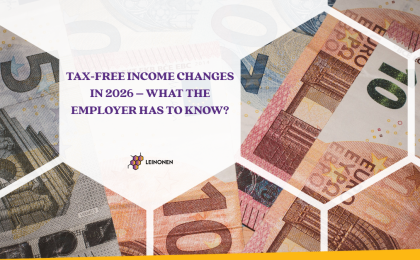An amendment concerning the deduction of input VAT was also made to the Value Added Tax Act (VATA) in relation to the amendment of the ITA. Pursuant to subsection 30 (4¹) of the VATA, transporting employees between their place of residence and workplace under the conditions set out in subsection 48 (51) of the Income Tax Act is deemed to be use of the car in business.
An entrepreneur must also keep in mind that although the expenses incurred on the transport of employees are deemed to be business-related expenses, this does not always mean that input VAT can be deducted from these expenses.
The tax authority explains. The VATA must include the specific provision to make the deduction of input VAT permissible. Pursuant to clause 29 (3) 1), input value added tax is value added tax to be paid on goods or services which a taxable person itself acquires or receives from another taxable person. If an employee of the company bought a ticket themselves for commuting between their place of residence and workplace and the relevant expense is compensated to the employee, then there is no fringe benefit. However, the company can still not deem the VAT added to the price of such a ticket to be input VAT and deduct it, because the recipient of the passenger transport service is not the taxable person, but a private person.
The tax authority’s position is that if a taxable person orders the specific service of transporting employees from home to work and back from a transport company and the invoice is issued by the transport company to the taxable person, then there is no fringe benefit for the purposes of the ITA and input VAT can be deducted on the basis of said invoice, because the invoice was issued to the taxable person itself.




